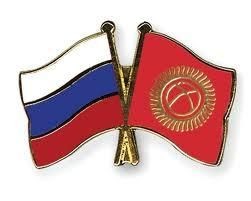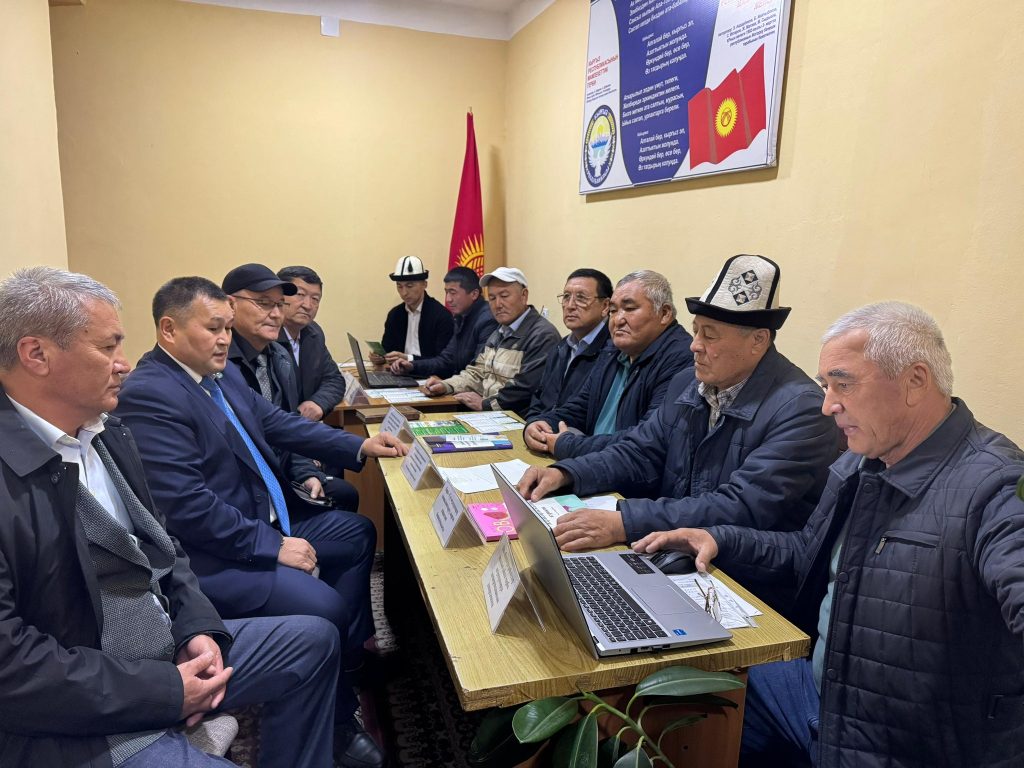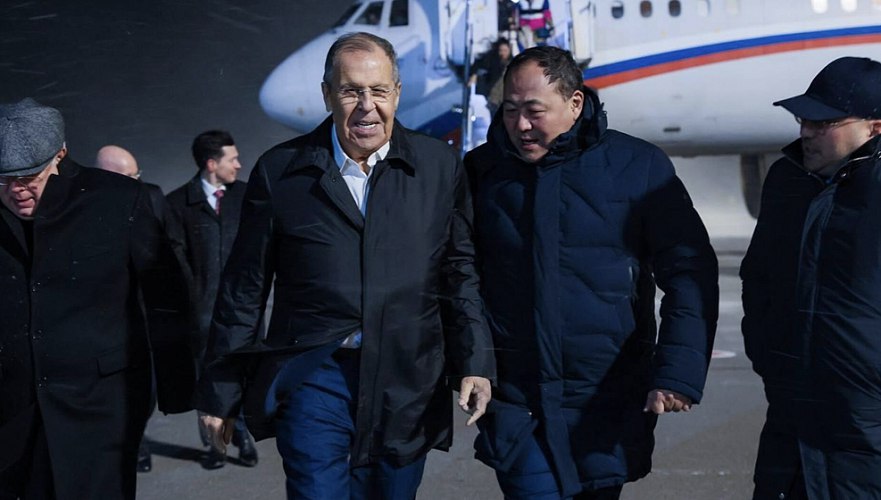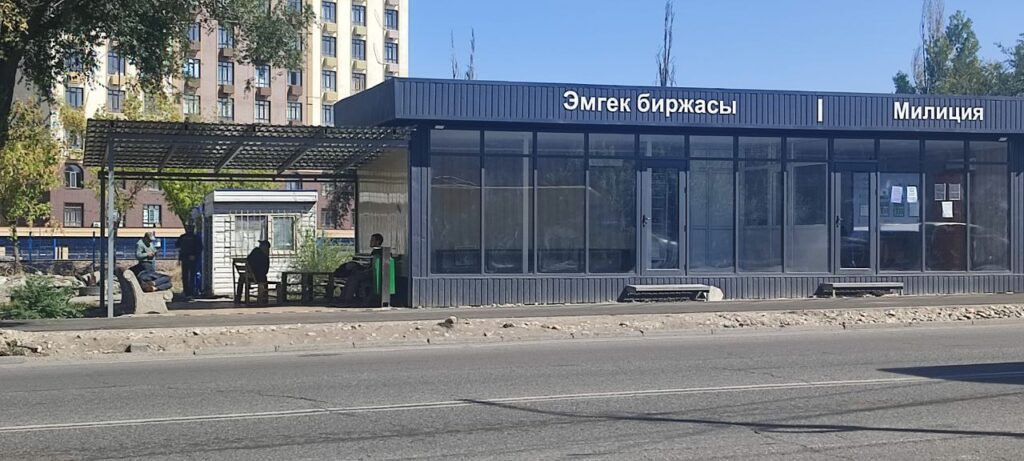BISHKEK (TCA) — “Improvement of quality education and high-tech technologies is a key priority for our country,” Kyrgyz President Sooronbai Jeenbekov said at the first forum of rectors of higher educational institutions of Russia and Kyrgyzstan.
The forum “Development of science and education: Investment in the future” was held in Bishkek on March 27, a day before the state visit of Russian President Vladimir Putin to Kyrgyzstan.
Single educational space
The event was attended by representatives of seventy universities of both countries including Russian Minister of Science and Higher Education Mikhail Kotyukov, Minister of Education Olga Vasilyeva, and heads of Russian universities led by President of the Russian Union of Rectors and Lomonosov Moscow State University Rector, Viktor Sadovnichy.
Kyrgyzstan was represented by Minister of Education and Science Gulmira Kudaiberdieva and the rectors of 30 universities.
The forum aimed to expand Kyrgyz-Russian scientific and educational cooperation and develop modern approaches to joint training of professionals.
President Jeenbekov proposed Russian scientists to cooperate in alternative energy and hydropower, research on water and mountains, high-mountain medicine, phytochemical studies on the production of environmentally friendly seeds and food, as well to develop a research base of health and rehabilitation tourism and the mining sector.
“Thirty years ago, we together represented a single educational space that was quite competitive in the world. It successfully met the demands of the economy, social life, government and defense,” Jeenbekov said. However, there is no single educational space now, but many years of experience have shown that it should be.
Currently, over fifteen thousand Kyrgyzstani citizens are studying in Russian universities in Moscow, St. Petersburg, Kazan, Novosibirsk, Tomsk, Belgorod, Yekaterinburg, and other cities. The most popular specialties are economics, law, international relations, management, software engineering, and medical care, Minister Kotyukov said.
Over a thousand Russian citizens are currently studying in Kyrgyzstan.
New ways of interaction
At the forum, 70 agreements and memorandums were signed. The Kyrgyz National University and Moscow State University (MSU) signed a Memorandum of Cooperation to deepen the exchange of scientific research. The Bishkek Humanities University also intends to develop ties with the MSU.
Kyrgyzstan will consider opening a Moscow State University branch in Bishkek, Kyrgyz Education Minister Kudaiberdieva said.
“The Moscow State University branch has not been opened in Bishkek so far, and this is not our fault,” MSU Rector Sadovnichy said at the forum. Earlier, he signed six agreements to create the branch and is now ready to sign the seventh one. Such branches are already successfully operating in six countries, he added.
Advisor to the Kyrgyz Education Minister Kairat Osmonaliyev believes that the MSU branch still does not work in Kyrgyzstan due to the poor performance of local officials.
The MSU is a brand in the entire post-Soviet space and a mark of quality higher education, he told Vesti.kg. “Studying at a MSU branch would be cheaper, but the MSU is responsible for the quality of education. In addition, successful students can be provided with budget places in the head University [in Moscow],” he added.
Ex-MP Omurbek Abdrakhmanov does not share this opinion. The level of Russian universities does not differ from those in Kyrgyzstan, he told Radio Azattyk. Media expert Ruslan Akmatbek believes that education is among components of Moscow’s growing influence in Kyrgyzstan.
Education system problems
Currently, Kyrgyzstan youth needs quality education more than ever. In the conditions within the Eurasian Economic Union, the country has to diversify its economy, moving from the re-export economy to industrial production.
There are too many specialists with higher education in Kyrgyzstan, and many of them do not work in their specialty. Every year more than half of universities’ graduates join the unemployed.
The budget funds allocated to the education sector is growing every year but there are no noticeable results. Thus, conceptual changes are needed in the whole education system.
Young people are not ready for the existing labor market realities. The universities accept students promising to train them in certain skills and knowledge, but in fact they do not know whether graduates will be in demand.
It is necessary to develop critical, rational and logical thinking in young professionals, their ability to work with large amounts of information and find solutions applicable in practice. This is a research process.
Filling in the gaps
Companies operating in Kyrgyzstan are facing a lot of problems, and the lack of qualified personnel is among the top ones, according to a study conducted by the International Business Council (IBC) based in Bishkek.
How to fill in the gaps between the expectations of employers and the training of qualified specialists in Kyrgyz universities?
At the forum of university rectors, IBC Executive Director Askar Sydykov told about how local businesses contribute to training specialists for their companies, as well as about the IBC participation in this process. The business association collaborates with university career centers, the high-tech park, IT Academy, and the Skills Development Fund.
“We will be happy if the heads of Russian universities share their experience in the university-industry interaction,” the IBC Executive Director said.
The business has long understood the need for investment in education and research. Therefore, most large companies pay for the training of future specialists themselves. Some companies are directly cooperating with educational institutions. For example, Gazprom Kyrgyzstan selected applicants and sent them to study at Russian universities.
Other large industrial companies are also involved in such projects.
Kumtor Gold Company encourages employees to grow professionally through continuous and advanced training. The company provides employees with the opportunities for free access to individual training, development of technical skills for career growth.
The company annually provides scholarships for secondary school graduates who wish to continue their education in vocational technical schools.
According to the memorandum concluded with local authorities, KAZ Minerals Bosymchak trains students from among local residents, at the company’s expense. University graduates are now working at the Bozymchak processing plant in the Ala-Buka region of Kyrgyzstan’s Jalal-Abad oblast.
The Alliance Altyn company is now recruiting new employees, as the Jerooy gold mine will soon start operating in the Talas oblast in northwestern Kyrgyzstan. The company recently selected 45 applicants from among local residents to be trained in various specialties, and the best candidates will be hired by Alliance Altyn.









